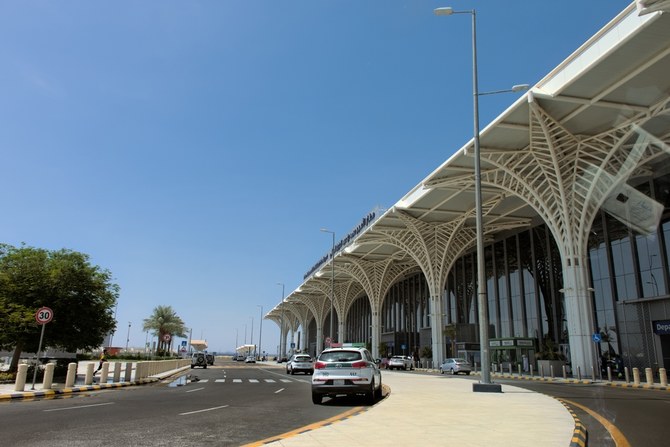RIYADH: Saudi Arabia’s Prince Mohammad bin Abdulaziz International Airport in Madinah has been awarded the title of the best regional airbase in the Middle East for 2024.
It was announced during the Skytrax World Airport Awards, held at the Passenger Terminal EXPO in Frankfurt.
During the event, known as the Oscars of the airport industry, Sofiene Abdessalem, CEO of Tibah Airports, which operates the Madinah airport, expressed appreciation and pride for the recognition.
He credited the success to the dedication of his company’s employees and airport partners, all working under the Kingdom’s General Authority of Civil Aviation.
“Thrilled to announce that Madinah Airport has once again been awarded the Best Regional Airport in the Middle East 2024 during the prestigious Skytrax World Airport Awards held in Frankfurt,” Abdessalem said in a LinkedIn post.
He revealed that Madinah Airport won this award consecutively in 2020 and 2021, “making this the third time in the last four years that the airport has achieved this honor.”
“This is a testament to Tibah Airports dedication to excellence and reflects the collective efforts and collaboration of Madinah Airport’s stakeholders,” Abdessalem added.
The Saudi airport has previously garnered numerous other international and local awards and acknowledgments, further cementing its status as one of the world's premier international airports.
In March, Madinah Gov. Prince Salman bin Sultan inaugurated the second phase of the airport’s expansion project, which includes the development of the terminal and the establishment of a new terminal for domestic flights, the Saudi Press Agency reported.
The project aims to double the airport’s capacity to accommodate up to 17 million passengers annually by the end of 2027.
Meanwhile, Qatar’s Hamad International Airport claimed the title of the world’s best aviation hub for the year, while Singapore Changi Airport, previously named the airport of the year in 2023 and a winner on 12 occasions in the past, secured the second position in the global ranking.
Changi Airport also earned recognition as the top airbase in Asia and for delivering the world’s best immigration services, as per Skytrax.
Seoul Incheon Airport, advancing to third place in the global survey rankings, was awarded the title of the world’s most family-friendly terminal for 2024.
Other highlights from the 2024 ceremony included Tokyo Narita Airport being recognized for customer service, earning the titles of the best airport staff in the world as well as in Asia.
Japan’s New Chitose Airport was voted the world’s most improved air facility, following a significant enhancement in performance across various categories in the global survey.
Chubu Centrair International Airport, situated in Nagoya, Japan, claimed the title of the world’s best regional aviation hub, while Kansai International Airport was honored as the world’s best airport for its exceptional baggage delivery services.
Furthermore, Rome Fiumicino Airport was honored as the world’s best airport for security processing, a first-time achievement for them. Conversely, Terminal A at Newark Liberty Airport attained recognition as the world’s best new terminal, following its earlier award of the highest 5-star rating from Skytrax.















